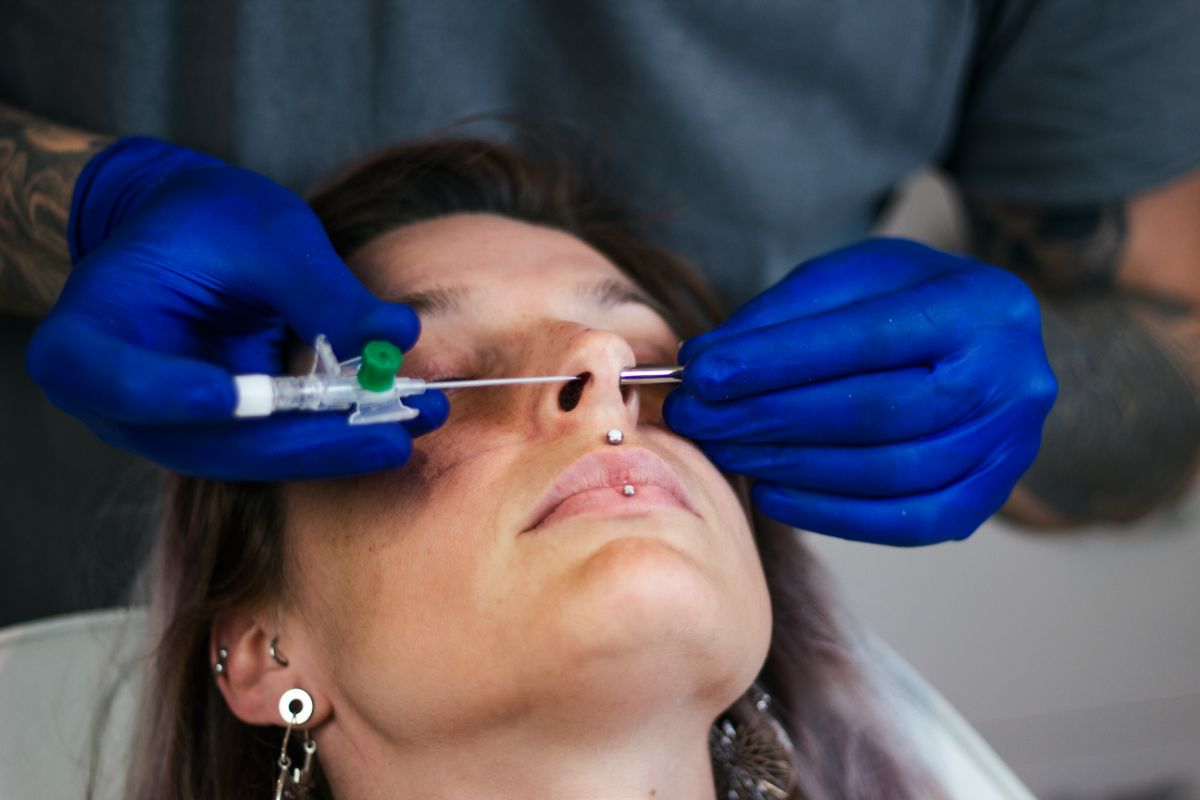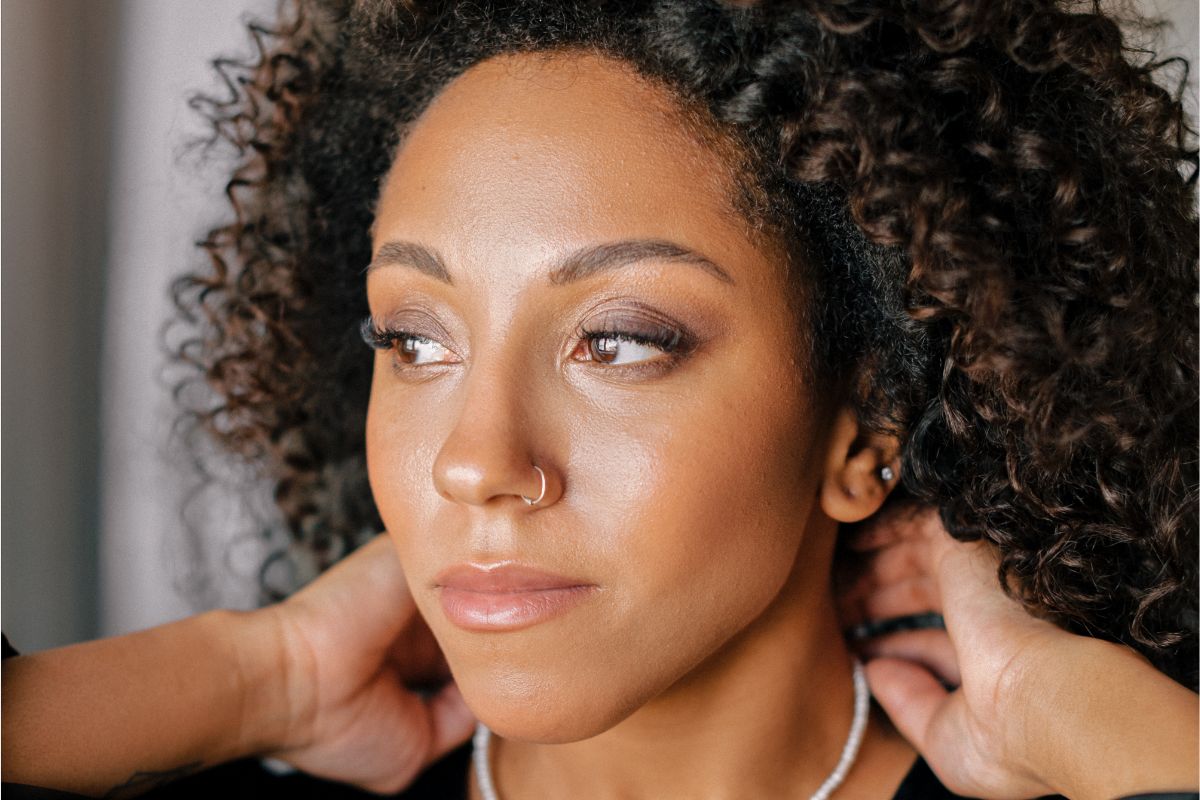Aftercare plays a major role in the healing of new piercings. While they’re a creative and fun way to add edge, some piercings require extra attention and care. You’ve spent a lot of time thinking about the kind of piercing you want, where to get it done, and what kind of jewelry to wear. But you need to maintain your piercing and keep it healthy.
So what kind of care does your piercing need? Read on to find out.
First — What to Expect After Getting a Piercing
When we admire piercings, we’re usually seeing them in their healed state. Most people who are getting their first piercings don’t realize that piercings are in fact an injury, and in the initial stages of healing, you should expect to experience bleeding, bruising, and tenderness in the area in the piercing area. Later in the healing process, itching, healing fluid secretions, and crusting are also normal.

Piercing and Aftercare Recommendations
Piercers and dermatologists usually recommend specific approaches for effective piercings, and following medically recommended aftercare to avoid piercing migration, shrinking, and infections. The following are some key recommendations to avoid issues:
Using Needles for Piercing
Needles are easy to use and sterilize because of their size. It's better to avoid using a gun for piercing as this type of piercing tool puts more pressure on the area, which will cause more damage to the underlying tissue.
Needles also have less volume, which increases the accuracy and precision of the piercing. And needles are less painful than guns!
Before you’ve committed to getting a piercing, be sure to ask your professional piercer or salon what tool they use for the type of piercing you want.
Establish a Healthy Routine
Maintaining good health is a highly crucial part of proper healing. If your immune system is weak, then your piercing will be more likely to heal slowly. Keep yourself hydrated, eat a balanced diet, don’t smoke or vape, and only drink in moderation. Healthy habits promote healthy skin. .
Thoroughly Cleanse your Piercings
All new piercings are prone to infections. Cleanse the piercing area with either commercial saline solution or fresh, filtered water to wash away bacteria, dirt, and dust. (If you’re looking for an easy way to clean and soothe your new piercing, try Dr. Piercing aftercare swabs.)
Be Vigilant When Wearing Jewelry
It’s natural to want to touch a new piercing during the day, whether or not you do it consciously. But did you know that even touching your starter jewelry too often can damage your piercing?
Professionals recommend people with new piercings avoid changing their starter jewelry until the first six to eight weeks after the piercing is done. If you experience any kind of allergic reaction to your starter jewelry or another piece, consult your doctor.
Use Saline Solution
Saline solution is one of the most essential and effective tools of aftercare. It’s also the most gentle. Don’t use antibacterial soaps, alcohol, or harsh chemicals — instead, use a saline solution on your piercing twice a day (or as directed by a doctor). Saline solution helps keep piercings hydrated and soothes pain and irritation.
Any commercially produced saline solution will work for your piercing. If you’re unable to purchase saline solution, it is possible to make your own.
The correct ratio for homemade saline solution is one-quarter teaspoon of sea salt per one cup of water. Always boil the water you’re going to use for at least 15 minutes and allow it to cool to room temperature before placing it in a sterilized container. Then, you can apply the homemade solution twice a day with a cotton swab.
Area-Specific Aftercare
In today's world, people think well beyond ear piercings. Following the trends can be fun, but going beyond ear piercings requires additional attention, consideration, and caution.
Navel Piercings
Navel piercings carry a high risk of infection because of their sensitive location. Choosing the right clothing can be a real challenge if you have a new navel piercing. But don’t worry — we have a creative solution that will let you comfortably stay covered up (even in winter).
Simply wear a stiff, vented eye patch under the top of your choice. Additional tips: Avoid wearing high-waist jeans, and prioritize loose-fitting sweatshirts and tops. .
Facial Piercings
Piercings on the face require more care and caution than other piercings. Avoid using makeup, perfumes, or other products in the area of the piercing. Twice daily cleaning with saline is an absolute must for facial piercings to avoid buildup of oil, dirt, and skin flakes that could interfere with the piercing.
Sleep on your back if possible, and use pillows to prop up your head and neck as needed to avoid damage to the piercing.
And even if it doesn’t look attractive, leave any crusties or dried skin in the immediate area of the piercing alone! They will shed on their own when they’re ready.

Genital Piercings
Be aware that genital piercings will bleed considerably immediately after the piercing is done and as it heals. It’s important to stay calm. Be especially gentle while cleaning the area. Use a saline rinse for faster healing.
A Few More Tips for Proper Healing
If you’re unsure just how careful you need to be with a new piercing, treat it like you would treat a newborn baby. Your new piercing will heal safely and correctly if you follow the guidelines in this article.
See your doctor if you suspect an infection, or if you have any other concerns about your piercing. Beyond consistent and appropriate aftercare, avoid removing your starter jewelry until your doctor recommends doing so.





